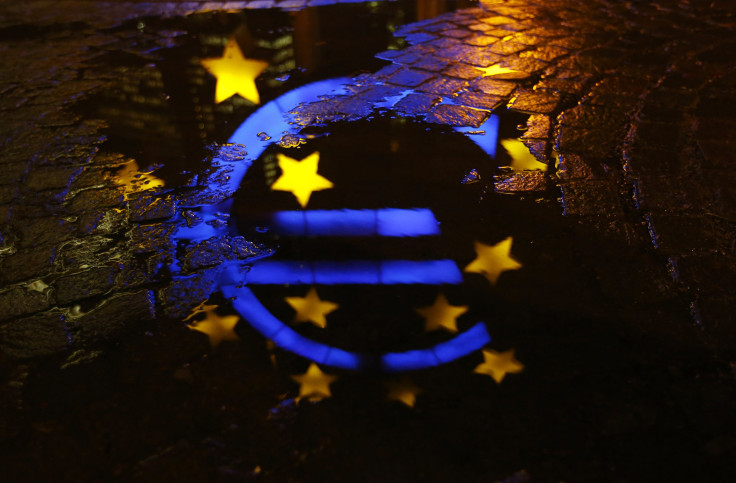Euro Hits Nine-Year Low Ahead Of Central Bank Decision Next Week

The euro hit a nine-year low against the U.S. dollar on Tuesday on investor fears that the European Central Bank will announce an aggressive stimulus plan next week in an effort to jump-start the lagging eurozone economy. An upcoming Greek election and sinking global oil prices haven’t helped, either.
At a panel discussion in Vienna on Monday, Ewald Nowotny, a member of the European Central Bank Governing Council, said policymakers “shouldn’t wait too long with a reaction,” to the risk of deflation in the eurozone. By Tuesday night, the price of the euro dropped to $1.1754, its lowest rate since December 2005.
“People are just happy selling the euro going into the ECB meeting next week,” Vassili Serebriakov, currency strategist at BNP Paribas in New York, told Reuters. “Nowotny has been more dovish than we expected and he’s not really a dove,” he said.
Figures published Jan. 7 show that consumer prices in the euro region fell 0.2 percent, confirming fears that the region could experience deflation, which could cause a recession in the near future.
While ECB chief Mario Draghi has previously been optimistic about the eurozone hitting 2 percent inflation, data released earlier this month shows inflation rates in Germany, the strongest economy, were just 0.1 percent in December -- its weakest since 2009. Last week, Draghi acknowledged the likelihood that the bank will vote to start buying massive amounts of government bonds to help stave off deflation.
The tactic, known as quantitative easing, is one of the most powerful tools lawmakers have to affect economic change. While the move could be a boost for the economy, it will likely cause the euro to fall even further.
After hitting a high of $1.3996 in May of 2014, the euro has fallen 16 percent against the U.S. dollar. In a Tuesday research note, Deutsche Bank revised its forecast for the euro downward, predicting the rate would fall to $1.10, $1 and 90 cents in the next three years.
“The Euro has been pressured by several factors, including prospects of central-bank policy action and concerns regarding political developments in Greece,” Mizuho Bank Ltd. analyst Sireen Harajli told Bloomberg.
Alexis Tsipras, leader of the radical opposition party called Syriza, has promised to write off some of the country’s debt and fight back against strict conditions of a bailout. According to the Guardian, he is likely to win the popular vote when the country holds its national elections just days after the European Central Bank announces its decision next week.
© Copyright IBTimes 2024. All rights reserved.





















